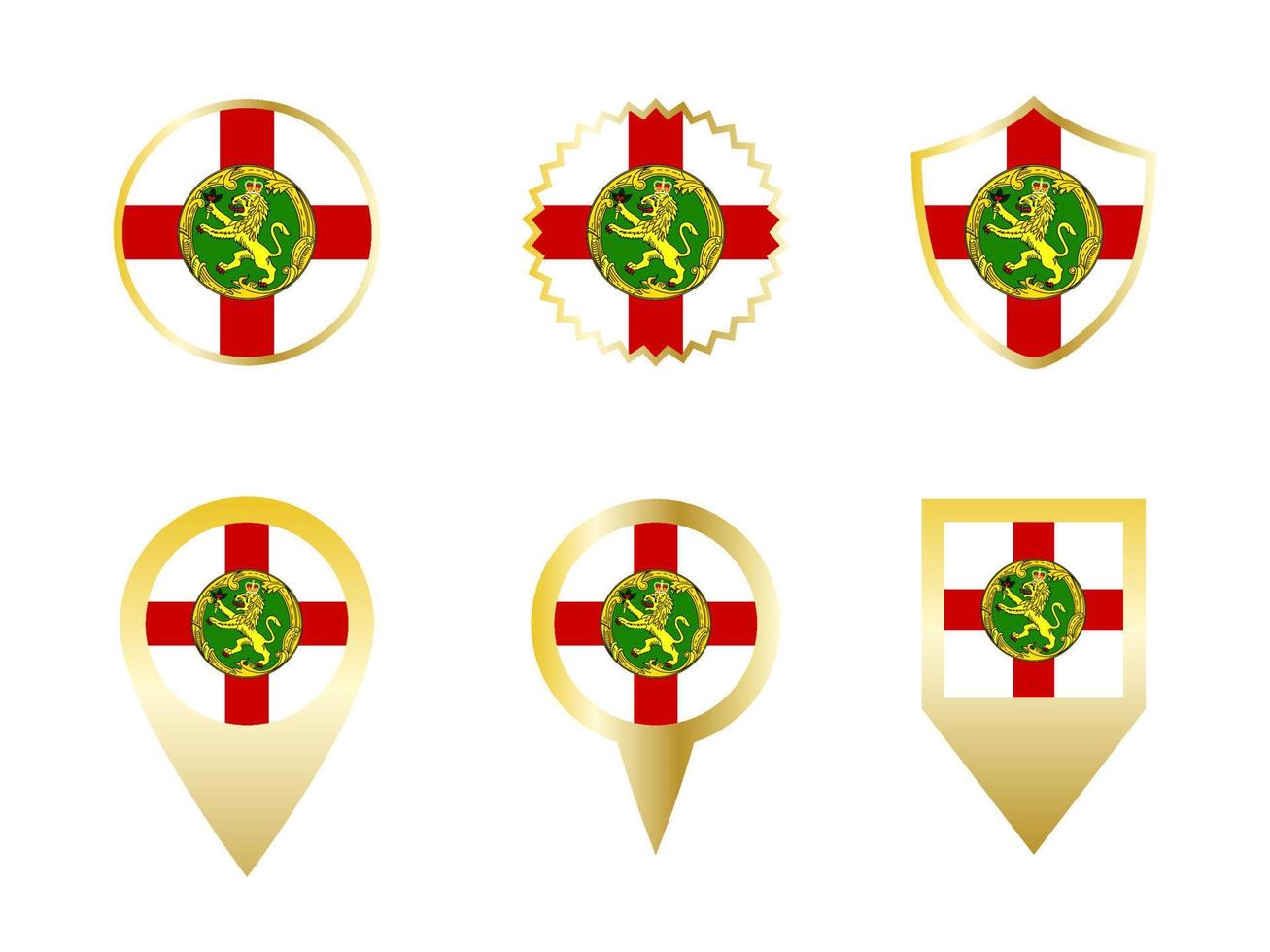St. George symbol holds profound cultural and historical significance across various civilizations, resonating deeply with themes of courage, faith, and righteousness. The image of St. George, often depicted as a knight battling a dragon, has become an iconic emblem representing valor and protection. This symbolism transcends mere legend, embedding itself into the fabric of numerous cultures, nations, and religious practices.
As we delve into the fascinating world of St. George symbolism, we will explore its origins, meanings, and its enduring impact on society. Understanding the roots of this powerful imagery allows us to appreciate its continued relevance in modern contexts, from national flags to religious iconography.
Whether you are a history enthusiast, a student of religious symbolism, or simply curious about the stories behind cultural icons, this article will provide a comprehensive overview of St. George symbol, its evolution, and its influence throughout history.
Read also:Gia Zavala Damon Rising Star In The Spotlight
Table of Contents
- The History of St. George Symbol
- Origins and Early Representations
- Cultural Significance Across Nations
- Religious Interpretations
- Modern Usage and Adaptations
- Key Symbolic Meanings
- Representation in Art and Literature
- Legends Surrounding St. George
- Contemporary Influence
- Conclusion and Final Thoughts
The History of St. George Symbol
St. George, a venerated figure in Christianity, has been a symbol of heroism and virtue for centuries. His legendary battle with the dragon has transcended religious boundaries, becoming a universal metaphor for overcoming adversity and evil. This section will explore the historical development of St. George symbol, tracing its roots from ancient times to its current manifestations.
Origins and Early Representations
The origins of St. George can be traced back to the early Christian era. Born in the region of Cappadocia, now modern-day Turkey, St. George was a Roman soldier who became a martyr for his faith. His earliest representations appeared in Byzantine art, where he was depicted as a brave warrior defending Christianity. These early depictions laid the foundation for the iconic imagery that would later emerge.
Over time, St. George's story evolved, incorporating elements of folklore and mythology. The tale of his dragon-slaying exploits became a central theme, symbolizing the triumph of good over evil. This narrative gained popularity across Europe, leading to widespread adoption of St. George as a patron saint in various countries.
Cultural Significance Across Nations
St. George symbol holds a special place in the cultural heritage of many nations. In England, for instance, St. George is celebrated as the national patron saint, with his emblematic red cross prominently featured on the national flag. Similarly, other countries such as Georgia and Portugal have embraced St. George as a symbol of national pride and identity.
Symbolism in National Identity
- England: The red cross of St. George is a powerful emblem of English identity.
- Georgia: Named after St. George, the country celebrates its patron saint with fervor.
- Portugal: St. George's influence is evident in Portuguese heraldry and folklore.
Religious Interpretations
From a religious perspective, St. George symbolizes unwavering faith and devotion. His martyrdom serves as an inspiration for believers, encouraging them to stand firm in their convictions. In Eastern Orthodox tradition, St. George is revered as a protector and intercessor, while in Western Christianity, he is celebrated as a model of courage and righteousness.
Key Religious Themes
- Martyrdom: St. George's steadfastness in the face of persecution.
- Protection: His role as a guardian against evil forces.
- Intercession: His ability to mediate between humanity and the divine.
Modern Usage and Adaptations
In contemporary times, St. George symbol continues to inspire and influence various aspects of society. From branding and marketing to artistic expressions, his image remains a potent symbol of strength and integrity. This section will examine how St. George's legacy is preserved and reinterpreted in modern contexts.
Read also:Bruce Venture The Ultimate Guide To Understanding His Legacy And Impact
Adaptations in Popular Culture
St. George's story has been retold in numerous films, books, and video games, ensuring that his legend remains relevant to new generations. These adaptations often emphasize themes of heroism and moral integrity, resonating with audiences worldwide.
Key Symbolic Meanings
The symbolism associated with St. George extends beyond his historical and religious significance. Below are some of the key meanings attributed to his imagery:
- Courage: Representing bravery in the face of adversity.
- Faith: Embodying unwavering devotion to one's beliefs.
- Protection: Serving as a shield against negative forces.
Representation in Art and Literature
Throughout history, St. George has been a popular subject in art and literature. His image appears in countless paintings, sculptures, and literary works, each offering a unique interpretation of his story. This section will explore some of the most notable artistic representations of St. George and their significance.
Iconic Artworks
- Paolo Uccello's "The Battle of San Romano": Depicts St. George in a medieval setting.
- Raphael's "Saint George and the Dragon": A masterpiece showcasing the saint's triumph.
- William Shakespeare's "Henry V": References St. George as a symbol of English valor.
Legends Surrounding St. George
While the historical details of St. George's life remain somewhat obscure, the legends surrounding him have captivated audiences for centuries. From his legendary battle with the dragon to his acts of bravery during his lifetime, these stories continue to inspire and educate.
Famous Legends
- The Dragon Slayer: St. George's most famous exploit, symbolizing the triumph of good over evil.
- Acts of Charity: Accounts of his generosity and compassion towards the less fortunate.
- Martyrdom: His steadfast commitment to his faith, even in the face of death.
Contemporary Influence
In today's world, St. George symbol continues to inspire individuals and communities. From charitable organizations named in his honor to public celebrations commemorating his feast day, his legacy endures in various forms. This section will examine the ongoing impact of St. George's symbolism in contemporary society.
Modern Celebrations
Across the globe, St. George's Day is celebrated with parades, festivals, and other cultural events. These celebrations serve as a reminder of the enduring relevance of his story and the values he represents.
Conclusion and Final Thoughts
St. George symbol embodies the timeless qualities of courage, faith, and protection. From its ancient origins to its modern adaptations, this powerful imagery continues to inspire and educate people worldwide. By exploring the history, cultural significance, and religious interpretations of St. George symbol, we gain a deeper appreciation of its enduring legacy.
We invite you to share your thoughts and insights in the comments below. If you enjoyed this article, consider sharing it with others who might find it interesting. Additionally, feel free to explore other articles on our site for more fascinating content on history, culture, and symbolism.
Data Sources: Britannica, History.com, Metropolitan Museum of Art


